 Jessica Alba doesn’t understand what she’s doing to herself. Gorgeous body…irritating mannerisms, displayed deliberately, ostensibly to portray someone who can get along without anyone else’s approval…but beneath the surface, craving it. Does this have some staying power? Well, whatever happened to Dark Angel?
Jessica Alba doesn’t understand what she’s doing to herself. Gorgeous body…irritating mannerisms, displayed deliberately, ostensibly to portray someone who can get along without anyone else’s approval…but beneath the surface, craving it. Does this have some staying power? Well, whatever happened to Dark Angel?
Despite a strong fan base (and a second season finale directed by James Cameron), Dark Angel was cancelled in 2002 after just two seasons due to budget costs and low second season ratings.
Not hard to see coming. I predicted it the very first time I heard Alba open her mouth and deliver a line. Being a smartass before the bad guy is really dead. Mistake. Building a television series around it. Bigger mistake. Letting five-times-married misogynist James Cameron have something to do with something about strong female characters: Huge mistake, done over and over again.
Alba, I’m convinced, is a walking reflection of that funny birthday card. The one with a gorgeous woman with a perfect body sunbathing on the beach in a bikini resembling two band-aids and a cork — and the caption is “No matter how hot she is, someone somewhere is tired of her shit.” Would you like to start shacking up with Jessica Alba? Not just sleep with her whenever you want…not just brag to you buddies about shagging Jessica Alba…but listen to her smack wise at you all day, ever day, for months.
People don’t have an apetite for it. Even if they share the agenda of building a generation of female smartasses, you hunger for this stuff only so long. Otherwise, Dark Angel would have had a third season.
Her smartass mouth betrays the problem:
Jessica Alba – ranked No. 2 on this year’s “Hot 100” list by Maxim magazine – has a rebellious side. “I love challenging authority,” the 26-year-old actress tells InStyle in its June issue, on newsstands Friday. “It probably wasn’t easy being my parents. The second somebody says ‘no’ to me is the second I’m going to jump up and say ‘yes!'”
:
She’s finally “getting to play characters and dive into things and not just be sort of this version of ‘this girl,'” says Alba, who found she was typecast as “some kind of little tart.”
“Because obviously, if you have a womanly figure, you’re not allowed to have a brain or any idea of the world whatsoever. You just have to be hot and use your body to get ahead.”
Doing it to yourself, sweetie. Doing it to yourself. Speaking for myself…and trust me, I’m labelled as a male chauvinist pig about as often as the next guy, not that I find these accusations to be well-thought-out or anything…I would go so much further out of my way to see what Scarlett Johansson is doing in a new movie, than Ms. Alba. And that’s not a good thing if you are Jessica Alba. Scarlett has a pretty nice body too, and she seems to be a sweet girl. I think if Scarlett and I were the last two people on the planet, I’d stay sane for awhile. I can’t say the same about Alba.
 Fear of strong women? Some people would say so. Johansson, however, doesn’t impress me as being submissive or weak. Just like the “Alba Zen” of developing a sudden taste for Coke, when you see I want a Pepsi, is not exactly the definition of strength.
Fear of strong women? Some people would say so. Johansson, however, doesn’t impress me as being submissive or weak. Just like the “Alba Zen” of developing a sudden taste for Coke, when you see I want a Pepsi, is not exactly the definition of strength.
But while Alba’s comments are intellectually vacant, to say nothing of repititious, the question that is opened by her observations is well worth pondering. Mankind has been working on incorporating female characters into drama, for — well, all of recorded history, it turns out. As a science, this remains hit-or-miss. People who have devoted their entire lives to figuring out how to do it, overseeing the investment of hundreds of millions of dollars into it, often know nothing significant beyond what can be observed by someone watching a movie or reading a book for the very first time.
But we do have some patterns. If anyone takes a minute or two to jot them down. So I thought I would.
First, women have a specific role to play in books and movies, and it’s a role men don’t support quite as well. Regardless of our sexual preferences or the agenda we have in mind for women, it seems we all identify with the ladies when they learn things. This is why the most intriguing female characters are never in James Bond films. It isn’t because of chauvinism from a bygone Cold-War era; it’s that in spy movies, the all-important task of figuring out what’s going on is supposed to be done by, well, the spy. Even in situations like those, where men step into the female role of detective, it’s done differently. James Bond steps into a hotel room and the audience expects him to get on a phone and meet his local contact. Instead, he searches for bugs. He finds some. Aha! I didn’t know there would be bugs in the room…James Bond did. He’s one step ahead of the audience. He knew something, the audience did not.
No matter how feminized some of us are, we just don’t tolerate this in female characters for some reason. We learn what they learn…as they learn it.
And it’s okay for the audience to know things the female character does not yet know. It just can’t work the other way.
That’s not to say, however, we want our film ladies to be quivering wallflowers. We do want them to be resourceful in their own way. They should be captured by the bad guy, and usually, if they try to escape, their attempt at escape should fail. You need a hero to escape. Is that sexism? It could be…it might be defended, however, as constructing a strong story. A villain isn’t threatening if he can’t perform the simple task of keeping a captured woman captured. But also, while a woman is captured, she can help develop her own character as well as the character of the villains in proximity. When this communication is coed, it’s more interesting than two guys talking smack at each other. We would rather see boy-girl. So captured the damsel shall remain.
But the best female characters, while in captivity, outsmart the villain in some way. This is a matter of balance. The villain has already done some outsmarting in his own way; she’s his captive, no? So without escaping, she can turn the tables on him. Trick him into revealing something. The result is we’re forced to keep watching, because we don’t know who’s going to “win.” Good drama.
Female characters question the hero’s loyalty, but never his competence. We are programmed to think that if a woman regards a man as weak or ineffectual, she must be right — and if that’s the case, this isn’t a very intriguing hero. We end up looking forward to the end of any scene that flaccid hero is in, so from then on, when the hero is at center stage the audience is being bored. So she views the hero as a maelstrom of unlimited power. Her issues with him, while she has some, have to do with where that power is being applied.
She has an emotional hold on the hero. This is important. If he doesn’t care what she’s doing, what she thinks, what happens to her, how she’s feeling, then she can’t motivate him. The best heroines provide a sense of purpose to a mission that, otherwise, would be without purpose. They define a hero who is motivated out of love, and we are more captivated with that hero than with any other.
Also, she should place pressure on the hero. She should be good at what she does, and in this way impose a necessity on him to prove things. She should offer him friendly competition. In short — she should use a number of tools to make him better than what he would otherwise be.
We are somewhat more intrigued by a female rebel breaking rules, and producing results that would have been unrealized had protocol been followed — than masculine figures doing the same thing. This is why the “cop movie” was mostly a fad of the 1980’s. You know the one. A rebel cop, or duo of black-cop-white-cop, breaks all the rules, ends up suspended, after being constantly yelled at by his “Lieutenant,” who in turn was almost always portly and black. Started with Dirty Harry, ended with Lethal Weapon. The Byronic hero, who subjects himself to endless torment because he just can’t stay within the lines, begins to bore us after awhile. Not so with the ladies who do the same thing. There is the additional angle that they can use their feminine charms to get out of trouble, and we never know how well this will work for them. A guy breaks a rule, we expect he’ll get his come-uppins…through someone yelling, at least. Gets boring after awhile.
And of course, no primary character should do what is expected of them all the time. So a female character should break some rules.
We are always fascinated, I suspect, when a female knows how to do things spectacularly well. It’s often a big help when the hero knows what to do, how to do it, and his plan involves about thirty steps…and before he can get started, the heroine comes along and gets it all wrapped up in one or two.
There are quite a few things a woman should not do. There is, for example, the slasher-film tango, the big bundle of physical things a woman does right before she is snuffed. Taking long sultry showers, walking backwards, closing medicine cabinet doors and moaning “Is that you?” and “It’s not funny anymore!” In 2007, this is all beyond tiresome. And of course she should never, ever, have arguments with the hero about whether she’s coming with him or not.
Being hysterical, assuming there was ever an audience for this, I’d say has just about run its course. Elegant storytelling means the audience knows what to feel. Do that job right, and we won’t need a walking cue card.
I’ve personally never cared for women being brainwashed. Someone somewhere must have been endlessly fascinated with this, perhaps sexually. Most recently we had Dark Phoenix in X-Men III, and the trend started…sometime in the sixties. The Star Trek episodes where Captain Kirk had to smack one of his female Lieutenants across the face, knocking her out instantly of course, so that she’d stop being hysterical and they could all leave the doomed planet before it exploded…or the monster…or whatever. On Her Majesty’s Secret Service, in whch Blofeld sought to destroy the entire world’s agricultural products through an army of hypnotized, brainwashed women. Somehow, the women lose control of their intellectual faculties. This has strong appeal for someone somewhere. Not for me.
The women who have captured our attention, have never limited themselves to sitting around waiting to be rescued. Victims are boring.
Compelling female characters do not cheat. It compromises the hero’s character. They may cheat on the villain, but even that diminishes the woman’s character. They aren’t remembered later. Look at poor Diane Lane; everybody knows her name, but nobody can remember the name of any character she played. Her characters are almost always married, and straying outside. People find this titillating, but they don’t respect it.
The female characters who have spoken loudest, to me…
1. Marion Ravenwood (Karen Allen) in Raiders of the Lost Ark (1981)
What a stroke of brilliance it was to give her a “super power,” which was the endless capacity for imbibing alcohol without getting tanked. It starts out as a seemingly useless skill, and she ends up working it into an escape plan. Perfect. She respected her hero, didn’t entirely trust him, overcame a broken heart but still carried herself with confidence. Easily the greatest female movie character of all time.
2. ElastiGirl (Holly Hunter) in The Incredibles (2004)
The movie is divided cleanly into two segments, in the first of which Mrs. Incredible has to find out what Mr. Incredible is doing, and after that they unite in a common cause. She loses a point for arguing with her leading man about whether she’s coming with him or not. Other than that, everything a strong female should be. Not sure about what’s going on — until she is — and then she quickly re-solidifies the union with her husband and helps to save the day. And what a stunning rear end. In the right mood, I’d rather stare at her than Lara Croft.
3. Dagny Taggart in Atlas Shrugged (Book) (1957)
Probably the best execution of “heroine trying to figure out what’s going on” in literary history. She’s interested in things other women find vulgar, bored by things that are supposed to define the whole world for other women, and she’s not the least bit concerned about any of it. Confidence personified.
4. Helen Tasker (Jamie Lee Curtis) in True Lies (1994)
Her issues with trusting her husband, after finding out he’s been a spy since two years before marrying her without telling her, define the central storyline for the entire movie. She looks amazing in her undies. This is metaphorical; just as even Jamie Lee Curtis’ fans were surprised about how she still looked and what she could do, this reflected Harry Tasker’s surprise at what his wife could do. A metaphor involving the actress herself, what an amazing achievement and how difficult it must have been. And it’s the brainchild of the guy who did Dark Angel. James, why can you do it some of the time but not all of the time?
5. Mary MacGregor (Jessica Lange) in Rob Roy (1995)
She was responsible for starting the chain reaction that would lead to good finally winning out over evil. She loses a point for doing it by going blubbering to a big powerful man, but it’s a very small point she lost. This was all the power a woman of her station would have in the young British Union. But she gets it back again by never, ever arguing with her husband about whether she was coming with him. She argued, instead, about whether he was going at all. Best of all, she agreed with him about his principles, admired him for having them, and simply disagreed about how far he would take them because she didn’t want him to die.
Simply put, the perfect movie wife. Perfectly capable of managing day-to-day without her spouse — but decidedly incomplete.
6. Holly Gennero McLane (Bonnie Bedelia) in Die Hard (1988)
Holly McLane has all of the ingredients. She’s in love with her husband, she respects him as a potent, powerful fighting force, she doesn’t trust him entirely, she doesn’t think highly of the way he does things, she finds him frustrating and irritating. She gets kidnapped. She outsmarts the bad guys, in her own way. She figures out what’s going on and the audience figures it out with her. The only thing she takes a pass on is getting in on some of the action. But she covers that, too, in the last couple of minutes in the movie by slugging that reporter.
7. Caroline “Ma” Ingalls (Karen Grassle) in Little House on the Prairie (TV) (1974-83)
She thinks for herself. But she’s motivated by exactly the same goals as her husband. If she thinks she has a need to stop what she’s doing and question him, she will.
8. Kay Adams (Dianne Keaton) in The Godfather (1972)
Tragically, here we have a woman with some good reason to question what her man was doing. But she knew Michael was lying. He really did intend to make the Corleone family legitimate, but he was doomed to fail. She probably knew this better than he did. She’s a critical pillar in the story, and she makes it work.
9. Marge Gunderson (Frances McDormand) in Fargo (1996)
What a woman! She faces down the bad guy as he is feeding his partner’s body into a woodchipper. Sees to it that justice is done, in her third trimester, without breaking her water. Comes home, snuggles up to her husband, and points out that his three-cent postage stamp is going to be just as important as any other. That is just so touching in it’s own way.
10. Ophelia (Jamie Lee Curtis) in Trading Places (1983)
Another one played by Curtis, how interesting. She’s easy on the eyes whether she’s from Austria, or Sweden, or just plain doesn’t know herself. She’s got a plan for making it, with or without Dan Akroyd. Akroyd’s character isn’t nearly as resourceful. But she goes with his plan, and in the end they both end up far wealthier than either of them would have been alone. Well, with Eddie Murphy’s help, but the formula is there. And best of all, in the very last scene of the movie, all the guys are fully clothed and the women are wearing next to nothing, as the Good Lord intended.
11. Evelyn Cross Mulwray (Faye Dunaway) in Chinatown (1974)
The only one on my list who knows something the audience doesn’t. Thanks to Faye Dunaway’s talents, we just can’t stop watching her, and we’re constantly wondering what will happen next until the very end of the movie.
12. Ripley (Sigourney Weaver) in Alien (1979)
She’s not there to yell at people or to act tough, she’s there to solve a puzzle. There’s the magic formula again: What she knows, the audience knows, what remains a mystery to us, is a mystery to her too. If she was a man, it wouldn’t work nearly as well. Well, I suppose Roy Scheider did the same thing when he faced off against the mechanical shark. This could be thought of as Ridley Scott’s answer to that. It works. The feminine mystique adds more depth than the outer space setting and the unseen enemy from another planet.
13. Dana Scully (Gillian Anderson) in X-Files (TV) (1993-2002)
The bitch is always wrong, and in ten seasons she never learns to shut her mouth. “But Muuuuuulllder!!! I can’t believe you think these cows were eviscerated by beings from another planet, there’s no eeeevvvvvviiiiidence!!!” Ugh. He’s Mulder. He read the script. Just go with it.
But give her a lot of credit. It was much more fun to watch these two, than Jack Webb and Harry Morgan. And it wasn’t because of the glowing creature emerging at midnight from the swamp, or the government conspiracies. It was because she was a beautiful, intriguing, intelligent, complex woman.
14. Clarice Starling (Jodie Foster) in Silence of the Lambs (1991)
There we go again. A woman applies some critical-thinking skills to the problem at hand, and we feel compelled to watch her do it. Sexual preference doesn’t matter, everyone likes to watch a woman solve a puzzle. We feel what she feels. A man can’t pull it off as well. But Clarice is no ordinary woman. She’s got scars from her past, she’s bright, energetic, capable, independent, married to her job. She’s a whole new character. Dented and flawed. The Byronic hero in female form. Somehow, it works.
15. Sarah Connor (Linda Hamilton) in Terminator (1984)
The movie starts, she has no clue what is going on. The weird stuff starts happening, she has no clue who she can trust. After building the pipe bombs with Kyle Reese, she’s still somewhat clueless about what she’s fighting. But she learns to be resourceful, and figures out how to lower the press on the evil crawling metal skeleton. She is the best embodiment of Joseph Campbell’s “Hero with a Thousand Faces.”
16. Queen Gorgo (Lena Headey) in 300 (2007)
Now, this was interesting. She saw Leonidas off to war, bidding him to come back home again carrying his shield, or on it. It was up to him to fight the physical battle, and face down Xerxes himself, but back at home she was left to confront an enemy her husband was spared: The Fifth Column. In this way, the masculine energies were leveraged against Saddam Hussein and Osama bin Laden, while the feminine mystique was positioned opposite Harry Reid and Howard Dean. A story for our times.
17. Adrian Pennino (Talia Shire) in Rocky (1976)
Okay, she is made great through a single line, and for that the bell gets most of the credit. But you aren’t human if you don’t get chills when she says, simply, “win.” That’s the job: He is transformed into something far greater than what he would be without her.
18. Charlotte Seccombe (Lynn Redgrave) in Centennial (TV) (1978-79)
She knows how to get her man away from the filthy clutches of Clemma Zendt. And it’s a delicious scene, which would have failed to blossom with the talents of a lesser actress — like Jessica Alba for example. You don’t want to mess around with Charlotte.
Those are all the ones I can think of for now. But you see, the point is this is something much more complicated than saying “yes” when someone else says “no.” And perhaps it’s an unfair burden that the male characters don’t have to share; the females have to define what they’re all about, at the same time as they do the same for other characters.
I think the gals have the long end of the stick on this one, though. It takes much more talented writing in order to use what they have to offer, properly. And once this is done, you have a kick-ass story. All those other staples, like dizzying photography or spellbinding music, you can pitch back if you want.
Now, try this. Go through a list of cream-of-the-crop movies. The innernets are covered with lists like these…Star Wars and Godfather and Shawshank Redemption always at the top. You will find — there are a whole bunch of movies that have no women. War movies. And some others…
This is not to say female character make a movie bad. They make the movie more challenging to make. Those best-of-the-best, that have no women in them as primary characters, they simply sidestepped the challenge. And you’re going to find the photography in those movies is breathtaking. Because it has to be. The music is original. And it just blows you away. Otherwise, you wouldn’t be seeing the movie on a top-one-hundred list.
Characters can contribute enough to make that expandable. Coed, not male-only. If the female characters are complex, and walk that fine balance between dependence and independence. Ditzy wallflowers don’t get the job done. And neither do smartass attention-whore rebels. For this, you need works of art, not tiresome tropes.
And I’m afraid, due to vapid sentiments given voice by Ms. Alba, this is an art that is gradually being lost. Too many more “Gotta Make A Boat Payment” movies, with cookie-cutter female characters, and the females are going to be lowered into yet another cultural malaise.
And we all know what happens then. Ho hum…BLAME THE MEN…must be rampant sexism out there.
Well, I’m not on board with any of that, so don’t send any of the blame my way when the time comes. And I hope it doesn’t get that far, because now that movie tickets are north of the ten dollar mark, I haven’t got much patience for crappy movies anymore.









 Jessica Alba doesn’t understand what she’s doing to herself. Gorgeous body…irritating mannerisms, displayed deliberately, ostensibly to portray someone who can get along without anyone else’s approval…but beneath the surface, craving it. Does this have some staying power? Well, whatever happened to
Jessica Alba doesn’t understand what she’s doing to herself. Gorgeous body…irritating mannerisms, displayed deliberately, ostensibly to portray someone who can get along without anyone else’s approval…but beneath the surface, craving it. Does this have some staying power? Well, whatever happened to  Fear of strong women? Some people would say so. Johansson, however, doesn’t impress me as being submissive or weak. Just like the “Alba Zen” of developing a sudden taste for Coke, when you see I want a Pepsi, is not exactly the definition of strength.
Fear of strong women? Some people would say so. Johansson, however, doesn’t impress me as being submissive or weak. Just like the “Alba Zen” of developing a sudden taste for Coke, when you see I want a Pepsi, is not exactly the definition of strength.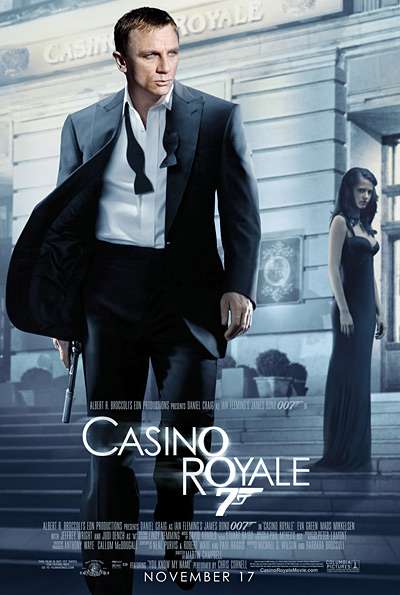 For this weekend, my son’s obsession was
For this weekend, my son’s obsession was 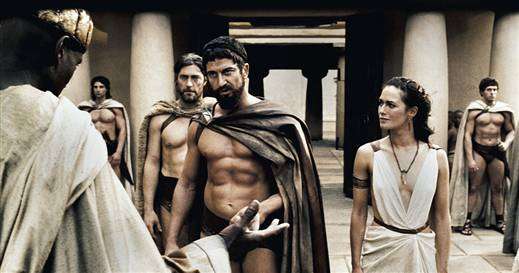 Guy Hasson, if I’m understanding him correctly, is not demanding a greater supply of imagination, creativity, variety and good storytelling; he’s asking for less of these things. A tough, hardy, intelligent, skilled and disciplined band of brothers have been portrayed as intrinsically understanding the most noble course of action, and then taking it upon themselves to hunker down and get it done. They laid down their lives and endured agonizing death in order to protect the weaker — and at the moment the final arrows hit, they were exactly what they were when the opening credits rolled by. No transformation. No loss of innocence. No “Omigaw, I just screwed up.” No “Omigaw, I was sure I’d make it back again.” No “Omigaw, I became what I went to fight.” Complete omigaw-free. Just manly men in the purest sense, doing what manly men do, understanding from start to finish what that all entails.
Guy Hasson, if I’m understanding him correctly, is not demanding a greater supply of imagination, creativity, variety and good storytelling; he’s asking for less of these things. A tough, hardy, intelligent, skilled and disciplined band of brothers have been portrayed as intrinsically understanding the most noble course of action, and then taking it upon themselves to hunker down and get it done. They laid down their lives and endured agonizing death in order to protect the weaker — and at the moment the final arrows hit, they were exactly what they were when the opening credits rolled by. No transformation. No loss of innocence. No “Omigaw, I just screwed up.” No “Omigaw, I was sure I’d make it back again.” No “Omigaw, I became what I went to fight.” Complete omigaw-free. Just manly men in the purest sense, doing what manly men do, understanding from start to finish what that all entails.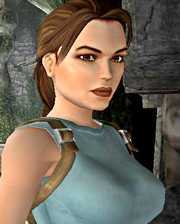 This seems to be
This seems to be 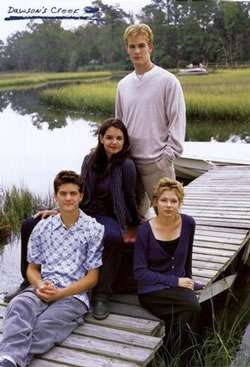 A rational ponderance of the evidence says this will suck. They’re going to find three people with big names, no more than 25 years good, and they’re going to try to pull in the ten-to-fourteen year old little girls with some non-threatening-looking men. Super-duper short haircuts. Eyebrow tweazing. No talking in deep voices or low tones. Jessica VI, similarly, will be played by a girl with a hot bod but otherwise non-threatening. Horrible acting. Something like Jessica Alba minus ten years.
A rational ponderance of the evidence says this will suck. They’re going to find three people with big names, no more than 25 years good, and they’re going to try to pull in the ten-to-fourteen year old little girls with some non-threatening-looking men. Super-duper short haircuts. Eyebrow tweazing. No talking in deep voices or low tones. Jessica VI, similarly, will be played by a girl with a hot bod but otherwise non-threatening. Horrible acting. Something like Jessica Alba minus ten years.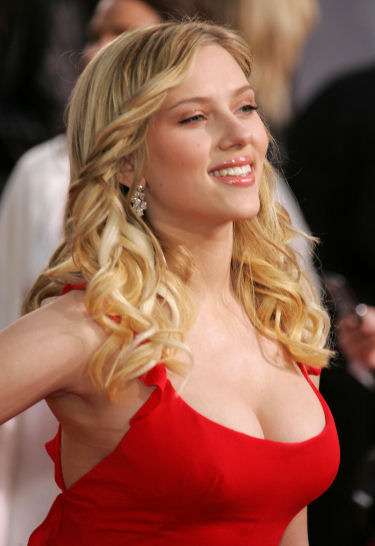
 In order of my preferences, here are the alternatives I’d consider if the decision was mine to make.
In order of my preferences, here are the alternatives I’d consider if the decision was mine to make. The photoshopping job you see at the right is extremely amateurish and crude. You can take it as my artist’s conception of the Wonder Woman costume Joss Whedon would have used in the
The photoshopping job you see at the right is extremely amateurish and crude. You can take it as my artist’s conception of the Wonder Woman costume Joss Whedon would have used in the 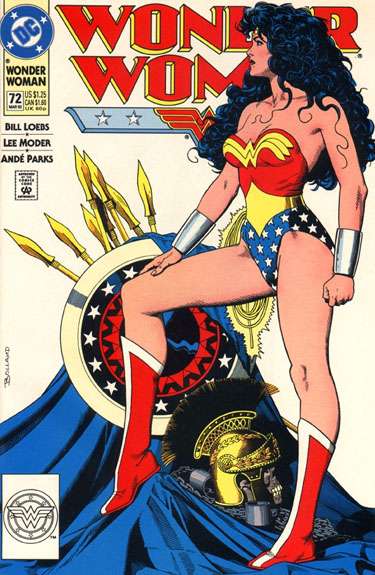 She’s physically strong, mentally capable, creative, resourceful, agile and fast. She would be unforgettable, and possibly harmful, in the sack. But she might very well be a virgin. She’s like Lara Croft, nobody really even knows what her sexual preference is, or whether she has one at all. Six foot three with her boots on, an even six or 6’1″ barefoot.
She’s physically strong, mentally capable, creative, resourceful, agile and fast. She would be unforgettable, and possibly harmful, in the sack. But she might very well be a virgin. She’s like Lara Croft, nobody really even knows what her sexual preference is, or whether she has one at all. Six foot three with her boots on, an even six or 6’1″ barefoot.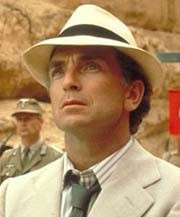 Not sure this belongs here, but it’s an interesting observation and it does have a relationship to the subject at hand. I was watching
Not sure this belongs here, but it’s an interesting observation and it does have a relationship to the subject at hand. I was watching 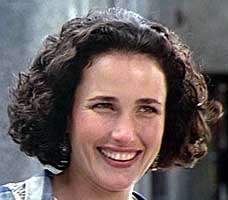 I find her to be a competent actress, and I’ll even go so far as to say she is “pretty.” If she were naked in my bed, yeah I’d do ‘er alright, but if she got a case of the munchies and asked me to make a midnight run for some sunflower seeds or cigarettes I’d probably kick her out. This is a problem.
I find her to be a competent actress, and I’ll even go so far as to say she is “pretty.” If she were naked in my bed, yeah I’d do ‘er alright, but if she got a case of the munchies and asked me to make a midnight run for some sunflower seeds or cigarettes I’d probably kick her out. This is a problem. 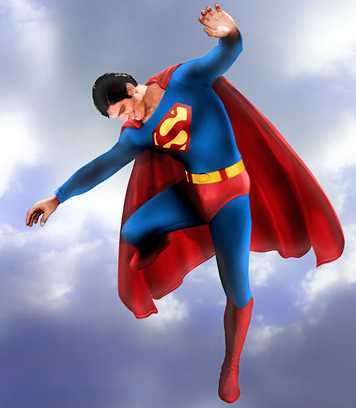 Twenty minutes later he was flying over a field when he saw Wonderwoman lying naked, in the middle of the field, with her legs apart and up in the air.
Twenty minutes later he was flying over a field when he saw Wonderwoman lying naked, in the middle of the field, with her legs apart and up in the air.